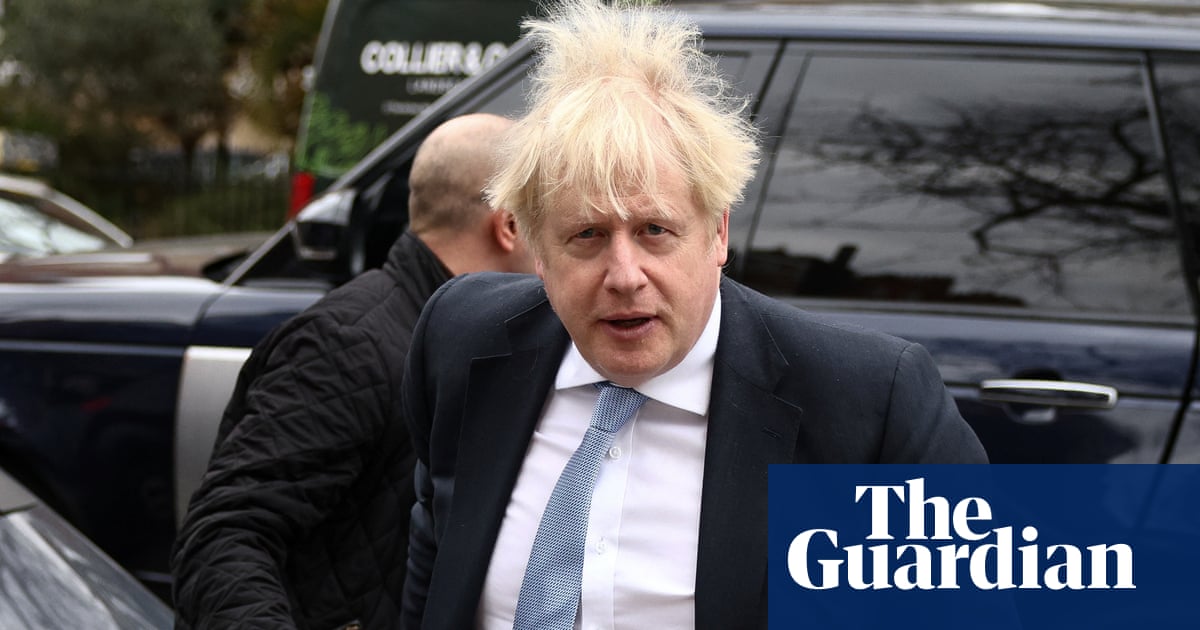
When the government first drew up plans to axe the virtual parliament and bring MPs back to the Commons chamber, ministers argued that it would boost support for the prime minister. Boris Johnson tends to work best with a crowd, so events such as prime minister’s questions were trickier when only a handful of Tory MPs were allowed in the chamber.
But when Conservative politicians turned up en masse to the Commons on Wednesday to debate the situation in Afghanistan, the opposite proved true. Rather than provide supportive interventions, Johnson soon discovered his biggest critics were sitting right behind him.
As Tory MPs lined up one after another to vent their anger on how the government had allowed the Taliban to take control of Afghanistan and criticise the response to the unfolding humanitarian crisis, it was clear how little support the prime minister had. “It’s good to see Tory MPs suddenly realising how crap their boss is,” noted one Labour figure.
As Johnson grapples with his biggest foreign policy challenge since entering 10 Downing Street, he faces a feuding cabinet and a febrile parliamentary party. To make matters worse, the questions being asked about the UK’s place in the world cut through to the very identity of the Conservative party.
The party has long prided itself on its commitment to defence, its special relationship with the United States and the ability to wield both hard and soft power on the global stage. Yet after the UK was bounced into withdrawal in Afghanistan with little in the way of consultation from the Biden administration, all three things have been called into question. Little wonder that a blame game is under way. Tensions have risen between the Ministry of Defence and Foreign Office with regard to the rescue effort.
When the prime minister stood up to open the debate, attention was as much on the stony-faced two men sitting either side of him: Dominic Raab and Ben Wallace. “I wouldn’t have been surprised if fisticuffs had broken out,” remarked one old-timer MP.
The foreign secretary and defence secretary have clashed, with the Guardian reporting Wallace telling colleagues there will be “a reckoning” for the department after several diplomats left “on the first plane out”, leaving MoD officials processing complex resettlement claims. While Wallace has publicly defended Raab since, staff in the Ministry of Defence claim their prior warnings were not taken seriously enough.
But Raab’s problems go further. The foreign secretary is facing a growing Tory backlash over his decision to only fly back from a holiday in Crete on Sunday evening when the Taliban were well on their way to taking Kabul. “Of the cabinet, he has a reputation for being sensible. What the hell was he thinking?” asks a government aide.
New revelations from the Mail alleging that Raab failed to listen to advice from Foreign Office officials and make a crucial phone call to the Afghan foreign minister to seek help to get translators out of Afghanistan will only add to the pressure. When Raab addressed MPs in a call earlier this week to answer questions, several came away unimpressed. “He seemed genuinely taken aback by how quickly things were moving. He had a nice tan at least,” says one attender.
“There’s a lot of anger at Boris and Dom,” says a member of government. “Why were they on holiday at the same time? Raab is his deputy. The only person who has come out of this with any integrity is Ben [Wallace].” Not that Wallace has escaped criticism entirely. When he appeared to shed a tear in a radio interview over the situation, some colleagues were quick to compare it unfavourably to the time Matt Hancock was accused of pretending to cry on television in reaction to the first coronavirus vaccines. Meanwhile, Priti Patel is due to address Tory MPs today and a number of so-called “red wall” MPs are seeking reassurances over the security checks being carried out on Afghan refugees accepted on to the resettlement scheme.
While the debate failed to point to mass support for an alternative strategy to the government’s, it did point to the problems Johnson now faces. As MPs heaped praise on foreign affairs select committee chair Tom Tugendhat – who served in Afghanistan – for his emotional speech, and more criticism on Raab for failing to reference it in his closing remarks of the debate, there were complaints that it contained clearer leadership and vision than the frontbench contributions.
The fact that Joe Biden has only spoken to the prime minister by telephone a handful of times since entering the White House is leading to concern among Johnson’s own supporters that he has little sway over a key ally. This means pressure on Johnson to strengthen European ties at a time when rows continue over the Northern Ireland protocol.
Meanwhile, if Johnson no longer believes the UK is able to lead on military missions, should that mean a focus on soft power? If so, the timing of foreign aid cuts – and the closing down of the Department for International Development as a single department – are hardly ideal. “There is no strategy or vision. That’s the problem,” says a government source.
For now, the government’s best hope is that the situation in Afghanistan does not deteriorate further in either cruelty and violence there, or terrorism here. In that time, Johnson needs to work out what he now thinks Britain’s place in the world is, who is best placed to help him deliver it and how to articulate it to his party.
Katy Balls is the Spectator’s deputy political editor












